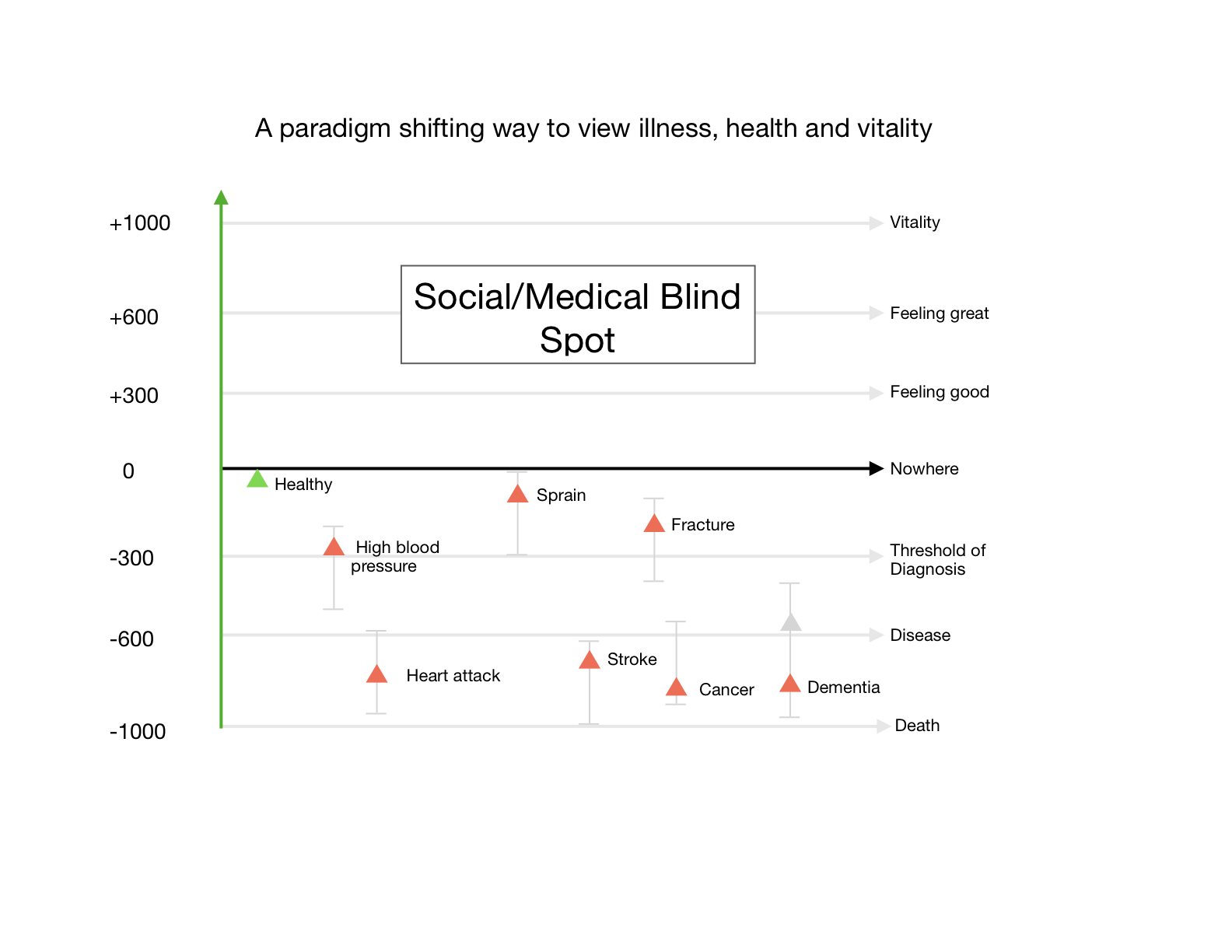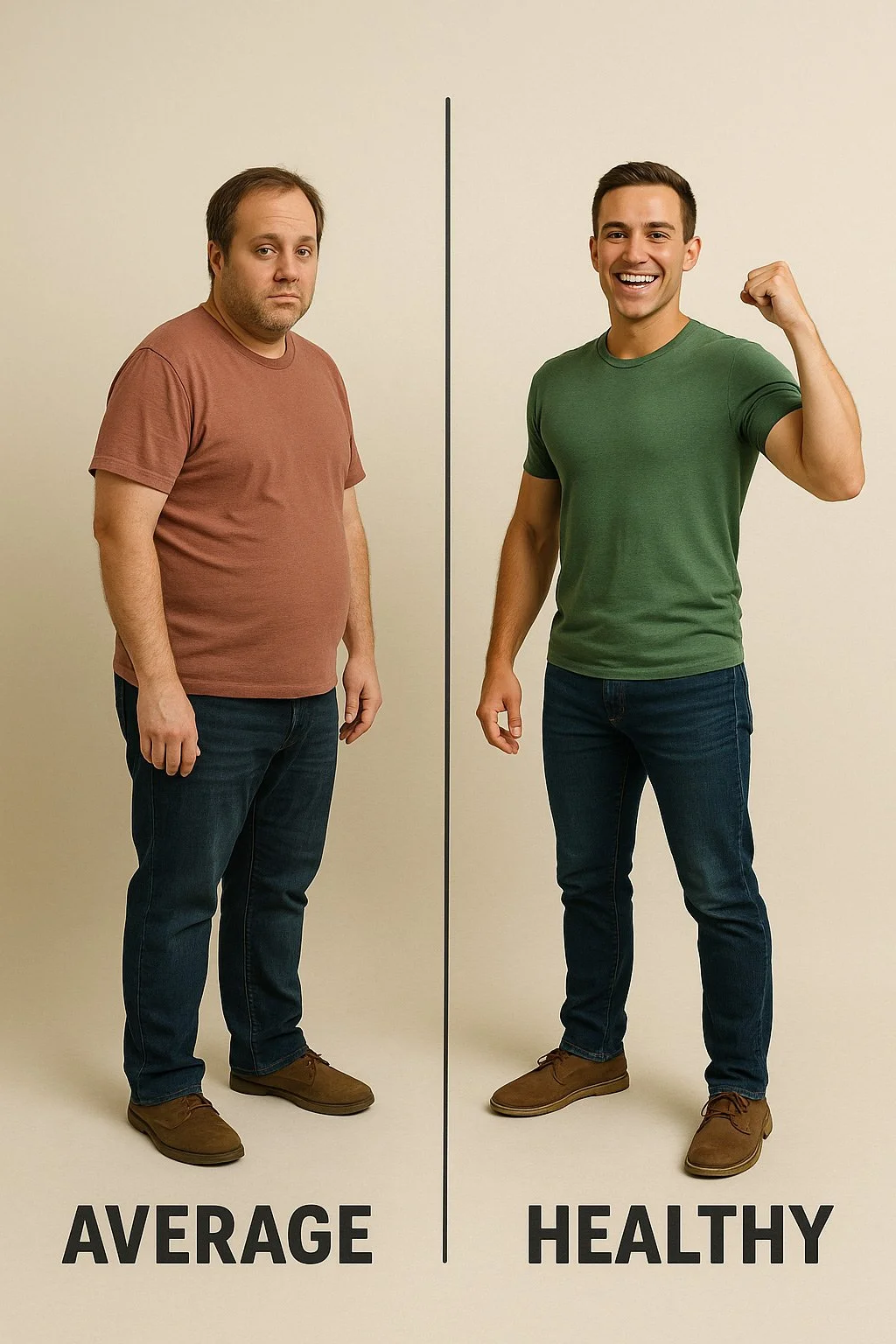Vitality vs. Health: Reframing the Responsibility
Your health is your responsibility—and yours alone.
Over the past 30 years I have seen the pain and assault on mental health caused by our failed approaches to health. I believe this to be caused by our own mistaken belief regarding who is in charge of health and vitality.
One of the most pervasive misunderstandings in Western medicine is the belief that medicine is responsible for your health. This is, quite simply, incorrect. Medicine plays a role, but it is not in charge. You are.
To begin reclaiming responsibility, we need to revisit the very definition of health. Many people equate health with being strong, active, resilient, or fully engaged in life. But this is actually the definition of vitality.
Health, in many conventional contexts, is merely defined as the absence of disease. That distinction is enormous.
Let’s visualize this with a simple spectrum:
On a health graph, zero represents the absence of disease—what we traditionally call "healthy."
Any negative number on that graph represents disease : an ankle sprain might be -60, high blood pressure -250 and cancer perhaps -600.
But what about the positive numbers? What would we call a +50? A +150? Even a +1000?
Most people would describe that state as wellness. I call it vitality. Unfortunately, in our society and certainly in medicine it’s a complete blind-spot.
A Simple Paradigm Shifting Framework
Now ask yourself: What does our medical system focus on?
Do you go to your doctor to optimize your vitality? Or do you go when you experience symptoms? When you do go, are you thoroughly evaluated for root causes—or are you often given a quick fix, like an antibiotic, painkiller, or blood pressure pill?
How often are you told your condition is not urgent enough? How many months (or years) have you waited for an assessment or treatment?
From this vantage point, it's clear: the medical system isn’t structured around vitality. It barely has the resources to reach zero.
We Are Chasing Zero
Our healthcare system is stretched thin. Funding limitations mean priorities must be set—and they fall squarely on the dying, the nearly dying, or those at immediate risk. There's little space for proactive wellness, prevention, or vitality-building strategies.
So when you go to your doctor and receive a prescription, understand this: that intervention is not designed to bring you to your highest potential. At best, it nudges you closer to zero.
You may be less unwell—but you are not necessarily well.
Know the System. Use it when its useful, but follow your own plan.
Respect your doctor. Appreciate their training and recognize the constraints they work within. But do not confuse their role in healthcare with your goal of vitality.
Use their insights and interventions as one part of a much broader strategy. Then take full ownership of the rest.
Educate yourself—relentlessly. Move your body. Build your capacity. Cultivate resilience. Optimize your sleep, nutrition, strength, and relationships. Engage with life in a way that no system can prescribe for you.
Do not settle for “not sick.”
Do not confuse a clear test result with peak performance.
And never forget: your vitality is your responsibility.



